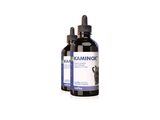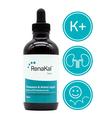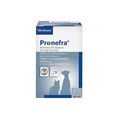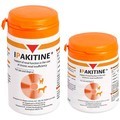It’s been reported that 80% of our older cats have kidney disease in some form. This unfortunately isn’t surprising as the kidneys have very little capacity to repair themselves. Any age-related changes are often permanent and Chronic Kidney Disease (CKD) is not an uncommon diagnosis in older pets. Our pet dogs can be affected too with around 3% of dogs in the UK suffering from kidney disease of some kind.
Managing kidney disease involves making sure the remaining, fully functioning portion of the kidneys is protected and not overworked. This blog will summarise the essentials you need to know about helping your pet’s kidneys stay healthy.
How can I tell if my pet has kidney disease?
Signs include increased drinking/urination, weight loss, reduced appetite and vomiting. The only way to definitively diagnose kidney disease is with blood and urine tests at your vets. If you are at all suspicious that your pet has a kidney issue then you should see your vet so they can diagnose it.
Key steps to managing the kidneys:
1. Treat the underlying cause
Natural aging is the most common cause of kidney problems, and we call this ‘Chronic Kidney Disease’ (CKD). However there are multiple other causes including kidney stones and toxins that can cause kidney failure, so it is important that your vet diagnoses these and treats the underlying issue as a priority.
2. Dietary management
One of the most important parts of managing long term kidney problems is with diet. Prescription kidney diets have reduced phosphate and sodium levels which can often become too high with the disease. They also have a reduced but higher quality protein content, additional amino acids and increased potassium/B vitamins. All of these work to reduce the workload on the kidneys and prolong their lifespan. Examples include Royal Canin Renal, Purina NF and Hills K/D.
3. Supplements
Over-the-counter supplements that provide additional amino acids and vitamins/potassium can be used and work similarly to dietary management. RenaKal is a good option for this.
Your vet may also recommend ‘phosphate binders’ to be used in the food as phosphate levels can become too high in pets with kidney problems. These bind to phosphate in the food and prevent it being absorbed. Examples of these include Pronefra and Ipakitine.
If you are struggling to get your pet to eat a prescription diet then the above supplements are really helpful at modifying your pet’s normal food to be as close to a prescription diet as possible. They should only be given alongside vet advice as potassium/phosphate levels in affected animals need to be very carefully managed.
4. Keeping hydrated
The kidneys control our pet's hydration status and it’s important to ensure you pet gets enough water intake to manage this. Most animals will drink enough when they need it and you just need to make sure there is fresh water available at all times. Consider giving wet food if your pet is not a good drinker. Some cats benefit from running water and investing in a drinking fountain can help. Here is a link to the Drinking Fountain Range on our site.
In severe cases your vet may advise you to give ‘Subcutaneous fluids’ at home. This is where they show you how to give sterile saline via injections to keep your pet well hydrated. You should follow your vet’s advice closely on how to do this.
5. Medications
High blood pressure and excess protein loss through the urine can be complications of long term kidney disease. Your vet will recommend tests to check for this and dispense any medications to help reduce this as required. Amlodipine (e.g. Amodip) is often used to treat high blood pressure and Benazepril or Telmisatran (e.g. Fortekor or Semintra) for excessive protein loss. You can purchase these medications from us alongside a written prescription from your vet, and more information on this can be found below:
"How do I buy prescription medicines?"
Repeat checkups!
Long term kidney disease will require re-checks with your vet in some form. Mild early disease may only require 6 to 12 monthly checkups, but end stage kidney disease may need to be re-assessed as often as monthly. It is important that you follow your vet’s advice closely on how often to see them and what specific treatments are required.
If you have any specific questions regarding your pet’s kidney issues then please contact our customer services on [email protected].
Written by: Dr. Nick Garside BVetMed MRCVS








